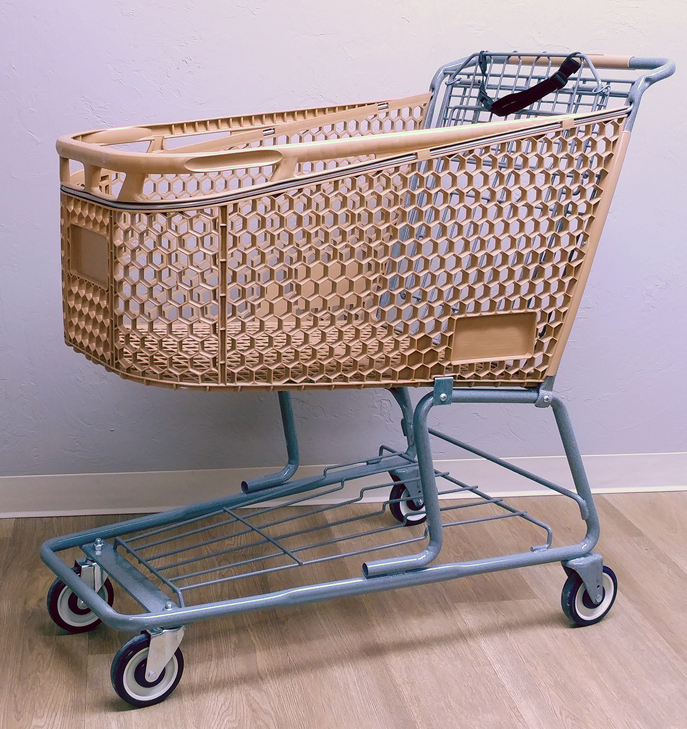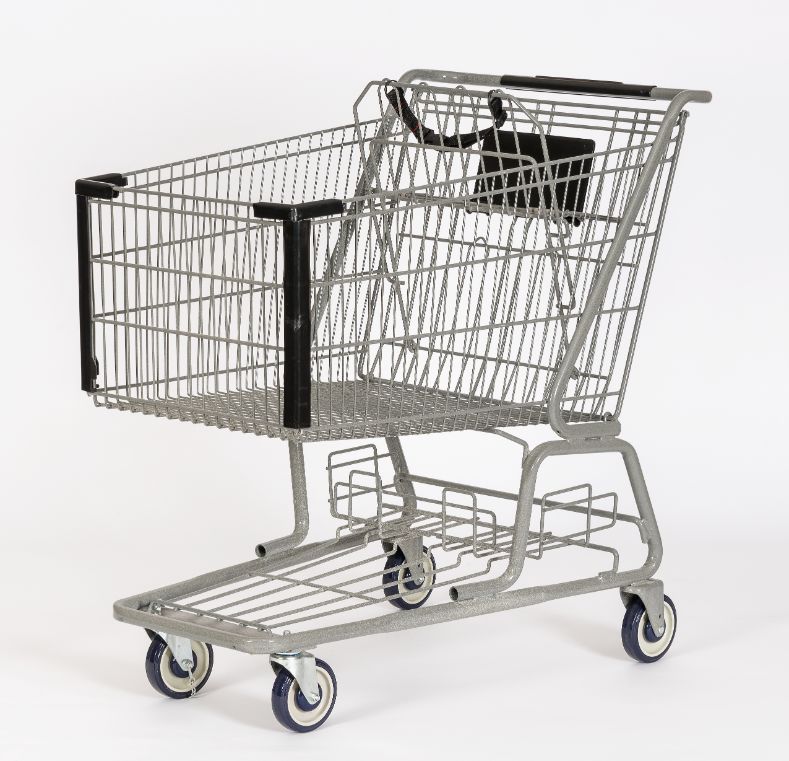Plastic vs. Metal Shopping Carts: A Comprehensive Comparison
When it comes to the enormous task of store planning, one often overlooked decision is the type of shopping cart to purchase for your store. Plastic and metal shopping carts are the two primary options available, each with its own set of advantages and drawbacks. In this blog post, we’ll delve into the pros and cons of both to help you make an informed choice the next time you need to replace your fleet.
Plastic Shopping Carts

Pros:
- Lightweight and Maneuverable: Plastic shopping carts are typically lighter than their metal counterparts, making them easier to push and navigate through crowded store aisles.
- Corrosion Resistance: Plastic doesn’t rust or corrode, making plastic carts suitable for wet environments or stores with refrigerated sections.
- Easier to Clean: Plastic surfaces are smooth and can be easily wiped down, helping maintain cleanliness and hygiene.
- Quieter: Plastic carts produce less noise when moving, contributing to a quieter shopping experience.
- Child-Friendly: Many plastic carts come with built-in child seats and safety belts, providing a safer option for parents with young children.
Cons:
- Durability Concerns: Plastic shopping carts may not withstand heavy loads or rough handling as well as metal carts, leading to potential wear and tear.
- Limited Load Capacity: The lightweight nature of plastic carts can limit the amount of groceries you can carry.
- Environmental Impact: Plastic is not as environmentally friendly as metal, contributing to plastic waste and pollution issues.
- Perceived Quality: Some shoppers may perceive plastic carts as less sturdy or lower in quality compared to metal carts.
Metal Shopping Carts

Pros:
- Sturdiness and Durability: Metal shopping carts are known for their robust construction, making them suitable for carrying heavy loads without compromising structural integrity.
- Longevity: Metal carts tend to have a longer lifespan due to their durability, reducing the need for frequent replacements.
- Higher Load Capacity: Metal carts can accommodate larger quantities of groceries, making them ideal for bigger shopping trips.
- Eco-Friendly: Metal is a recyclable material, making metal shopping carts a greener choice for environmentally conscious shoppers.
- Perceived Quality: Many shoppers associate metal shopping carts with higher quality and reliability.
Cons:
- Heavier and Bulkier: Metal carts are heavier and can be more challenging to maneuver, especially for individuals with limited strength.
- Potential for Corrosion: If not properly maintained, metal carts can rust over time, affecting their appearance and functionality.
- Noisier: Metal carts tend to produce more noise when moving, which could be a drawback in quieter shopping environments.
- Higher Initial Cost: Metal shopping carts often come at a higher initial cost compared to plastic carts.
Conclusion
The choice between plastic and metal shopping carts ultimately depends on your specific needs and preferences. If you value lightweight maneuverability, easy cleaning, and child-friendly features, plastic carts might be your preferred option. On the other hand, if durability, load capacity, and eco-friendliness are your priorities, metal carts could be the better choice. Regardless of your decision, both types of carts play a crucial role in enhancing the shopping experience and ensuring your customer’s groceries get from the store to their home safely and conveniently.
Shop New Carts